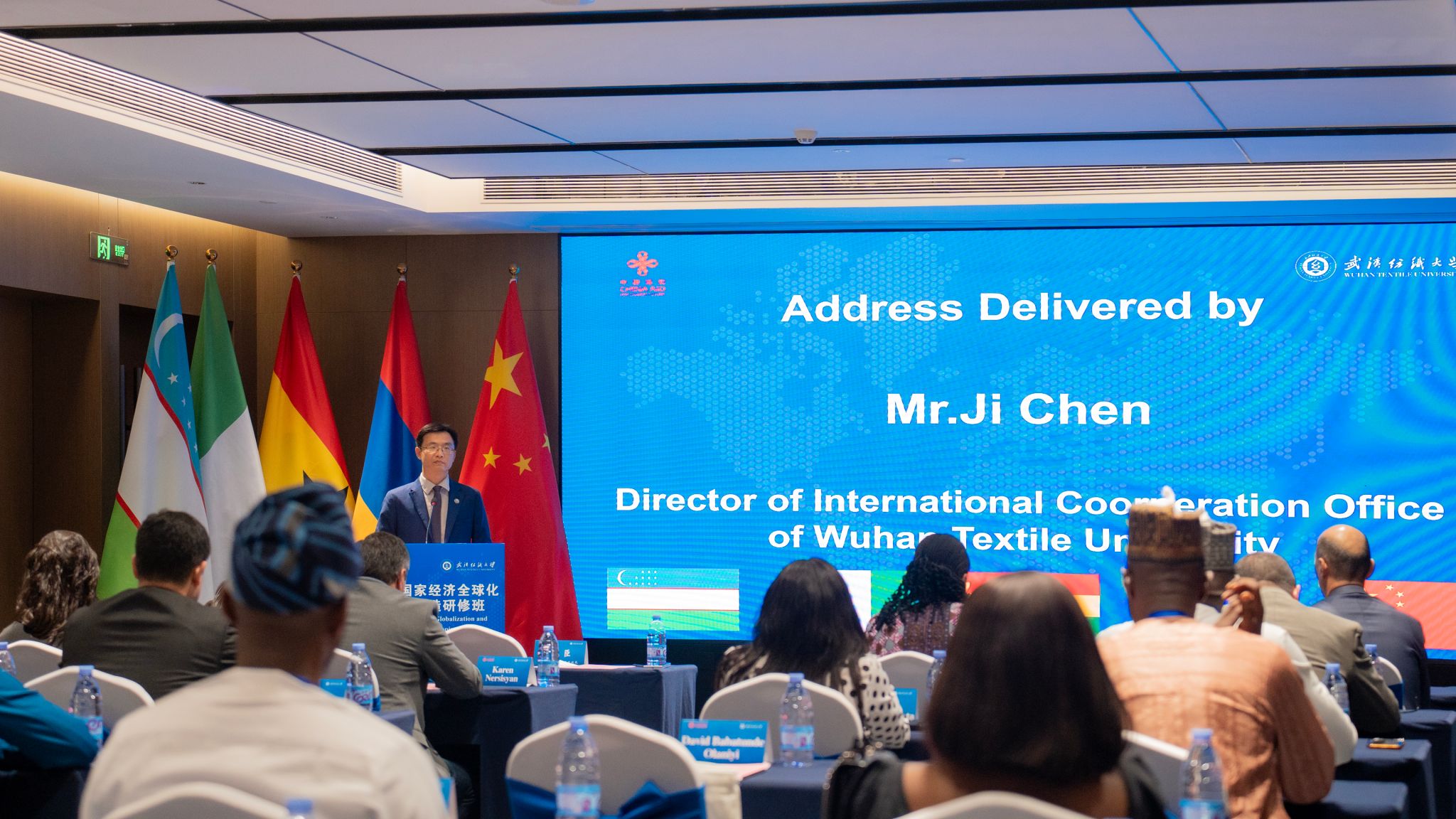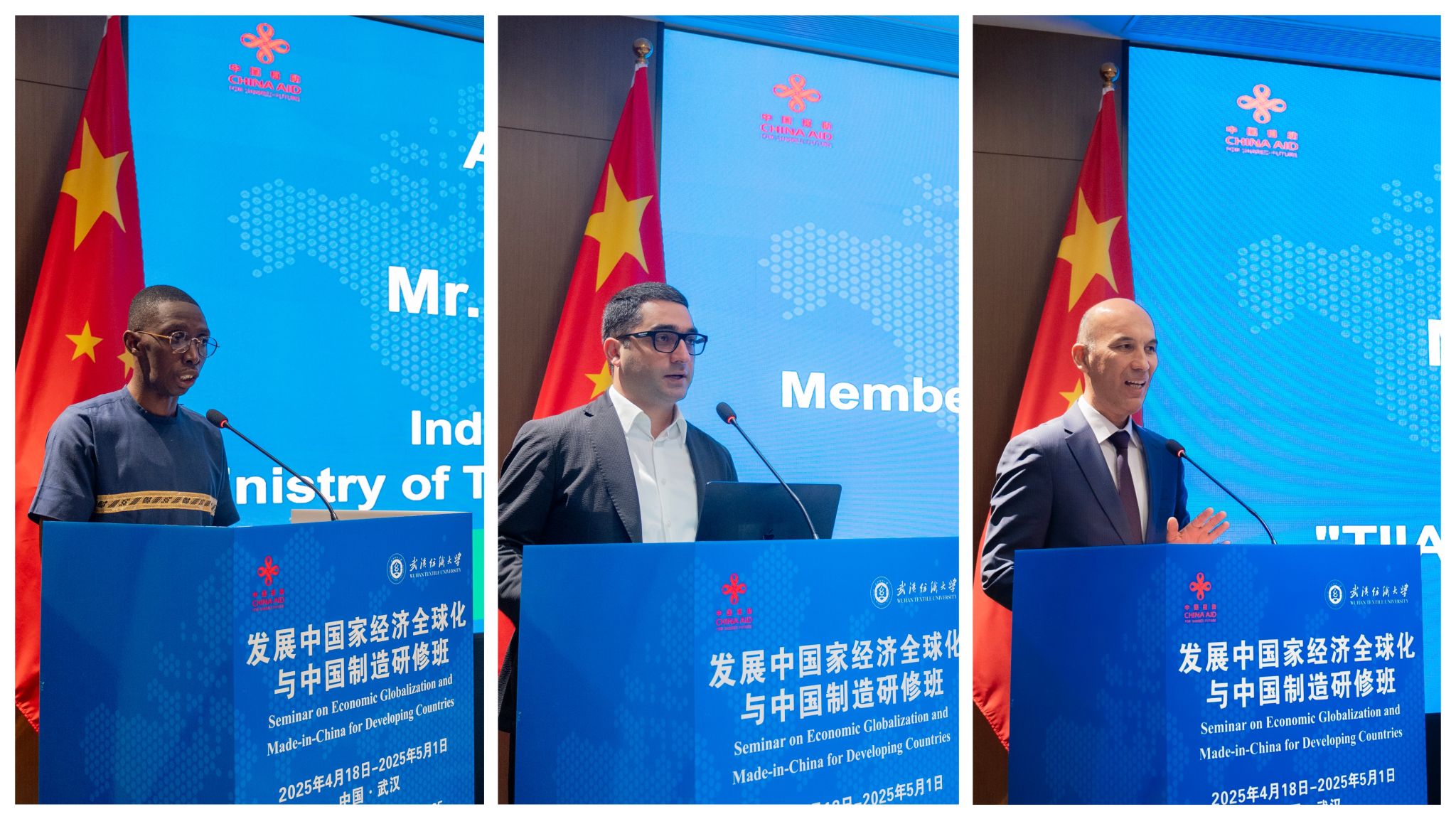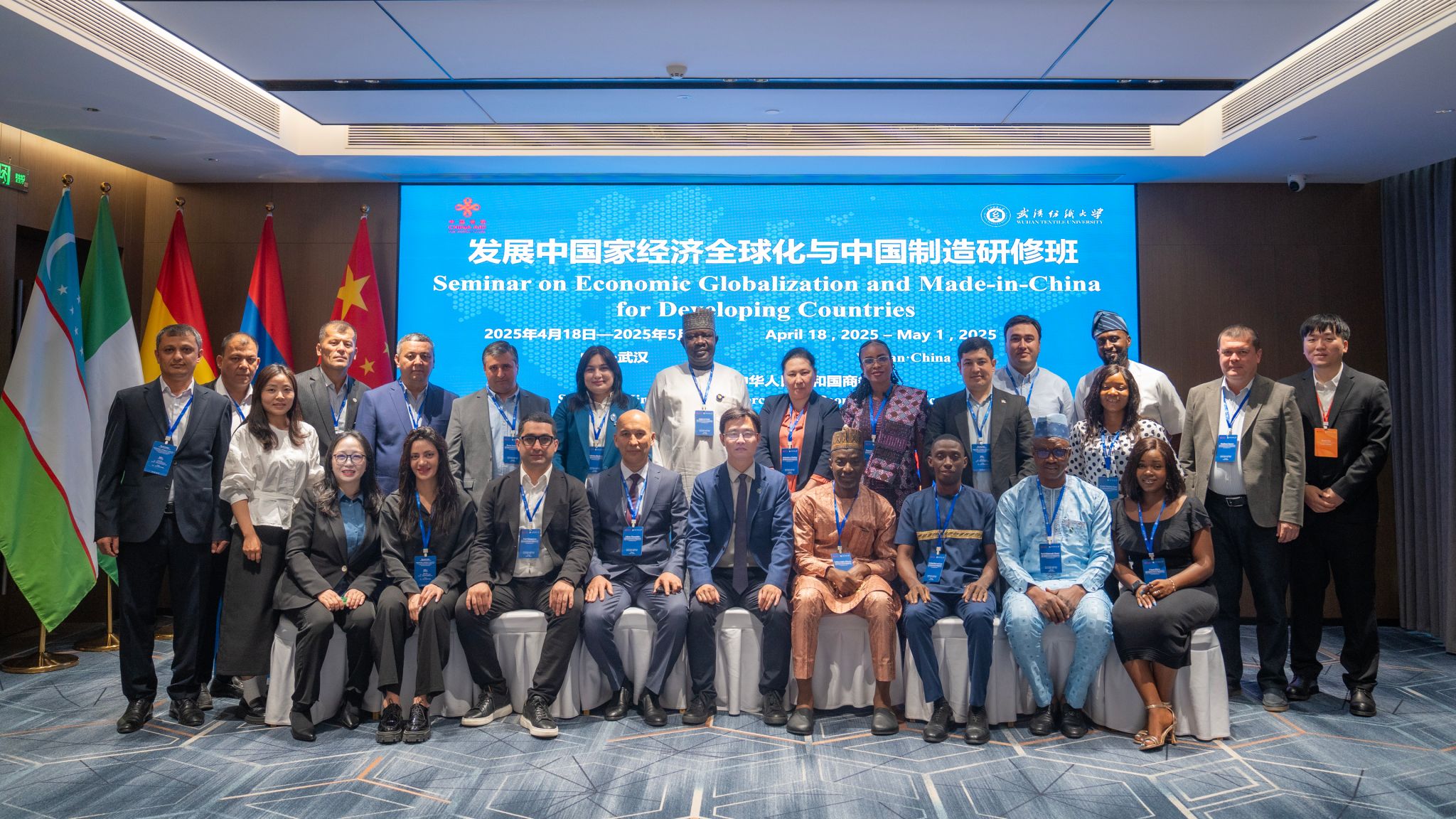On the afternoon of April 18th, the opening ceremony of the “Seminar on Economic Globalization and Made-in-China for Developing Countries” was warmly held in Wuhan. Hosted by the Ministry of Commerce of China and organized by WTU, this Seminar brought together 22 distinguished government officials, industry experts, and university representatives from Nigeria, Armenia, Ghana, and Uzbekistan to foster collaboration and deepen friendships. Ji Chen, Director of International Office, Dean of International Education College, and Director of Foreign Aid Project Management Center, along with key staff members, warmly welcomed everyone at the opening ceremony.

In his welcoming remarks, Mr. Ji extended heartfelt greetings to all participants and shared insights into the WTU's strengths in textile technology, fiber materials, intelligent manufacturing, and other cutting-edge fields, as well as its achievements in international cooperation. He emphasized that economic globalization presents both opportunities and challenges, such as technological advancements and industrial restructuring. Drawing on China's 40-plus years of reform and opening-up experience, he highlighted the country's modernization journey, rooted in a strong manufacturing foundation and innovation-driven growth. This training program aims to explore China's innovative practices in manufacturing and its path to globalization. Through meaningful exchanges and learning, Mr. Ji expressed hope that participants would gain new perspectives for their countries' industrial development and upgrades, contributing to the high-quality joint construction of the "Belt and Road Initiative."

Representatives of the trainees—CHRISTIAN KOKU AVAYI GAOSO, an industrial promotion officer from Ghana's Ministry of Trade and Industry; Nairi Margaryan, head of NM Construction Company in Armenia; and Adham Mamataliev, associate professor at TIIAME National Research University in Uzbekistan—spoke in turn. They praised China's remarkable achievements in manufacturing innovation and global development, which offer invaluable lessons for developing countries. They expressed eagerness to learn about China's policies and practices in areas like intelligent manufacturing and green industries, aiming to align these insights with their own national contexts to pursue sustainable development paths. Additionally, they looked forward to strengthening exchanges and cooperation with China in technology, investment, education, etc.

